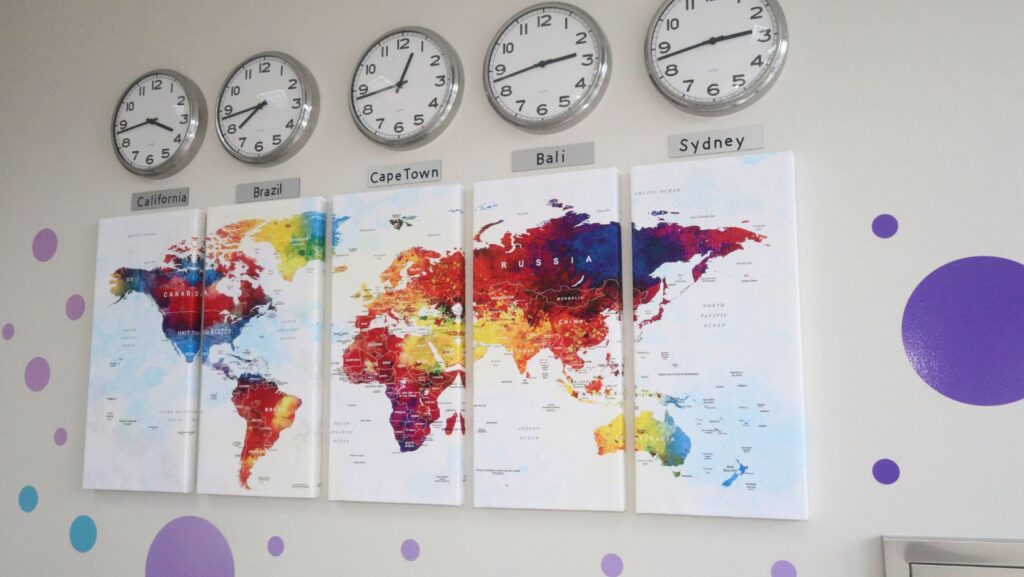
In today’s globalized world, working with offshore teams has turned out to be the run-of-the-mill activity for too many companies. However, managing time zones effectively has been a big challenge. Coordinating work across different geographical locations not only implies dealing with the technicalities involved in collaboration but also the intricacies of time zone differences.
Therefore, how do you deal with these challenges to ensure smooth and effective collaboration with offshore teams? We’ll go into the dynamics of working with companies involved in offshore software development and discuss some of the details about offshore software development. It will also give strategies for optimizing your collaboration with an offshore software development company.
Working with offshore software development companies brings numerous advantages, such as access to a global talent pool and cost savings. Nevertheless, the most major issue when dealing with cross-time zone dealings is how this affects communication and, in turn, project timelines. The first step toward defeating these challenges is learning the time zone differences between your team and the offshore company.
Clear channels and protocols for communication need to be established. Regular meetings should be convened at times that are easily and conveniently workable for both parties. Of course, this requires some amount of compromise but is paramount in staying aligned and on the same page with all team members. Shared calendars or scheduling software can make a big difference in managing meetings effectively.
Setting expectations of work clearly, along with the deadlines, will also help resolve issues pertaining to time zone differences. There needs to be mutual understanding between the two teams in terms of the milestones that need to be achieved for the project and the delivery schedules. In this way, such clarity will reduce the possibility of misconceptions, and a project running according to plan can be made feasible.
Offshore Software Development: Strategies for Effective Collaboration
Proper planning and communication could be a solution in the case of offshore software development. One of the possible ways is to implement a strong project management system with asynchronous functionality for communication. Put simply, the tools like Trello, Asana, or Jira will help track progress and create tasks while being online at totally different times.
The role of documentation in any offshore project is, undoubtedly, huge. Having teams at two different time zones does definitely pose the risk of miscommunication or missing information. Elaborate documentation makes sure that all members of the team get to have the exact same information and may refer to it whenever required. These also include requirements documents, design documents, and decisions made at meetings.
This can also be achieved by allocating time zones for particular activities. For example, if the team in one time zone completes an assignment overnight, the next steps can be taken up by the offshore team in another time zone as a part of their daytime work process; that can actually turn out to be a very smooth process, giving continuity to the project altogether.
Offshore Software Development Company: Building Strong Relationships
However, the right choice of the offshore software development company is important for success. More than managerial time zones, it is the nature of the relationship built with the offshore team that will have a large impact on the success of the project. One super way to do this is by developing the relationship through informal interactions. These can be virtual coffee breaks or informal chats during which workers enjoy rapport-building times that cohere them better.
Another key element would definitely be the cultural understanding. There can be a very broad spectrum in terms of the working style and communication; what is acceptable in some culture can be considered quite offensive in the other. Understanding this and to some extent sensitivity to such issues can construct an environment done through collaboration and hence reduces probable conflicts. For example, some cultures foster directness, while others do not.
Feedback and iteration are also necessary. Regularly asking for feedback from your offshore team and being open to their suggestions may result in better outcomes. It shows respect for their expertise and encourages a cooperative approach to problem-solving.
Conclusion
Certainly, one of the major challenges to handling is time zones while working with an offshore team; on the other hand, it can be managed. This comes from understanding the dynamic of working with an offshore software development company, using effective communication and project management practices, and creating a strong bonding with your offshore team.
Due to the diversity in the talent pool and cost-effectiveness, the benefits of offshore software development outweigh the challenges if one approaches them thoughtfully. In this regard, setting clear expectations, using technology, and building a collaborative environment will be necessary to make your offshore projects run seamlessly and efficiently.
In a time when the constraints of time zones no longer prove to be an issue in great teamwork, the proactive measures taken around these differences shall turn such challenges into opportunities for growth and success. Embrace the global nature of today’s workforce and make the most of the talent and fresh perspectives that offshore teams can bring to your projects.












